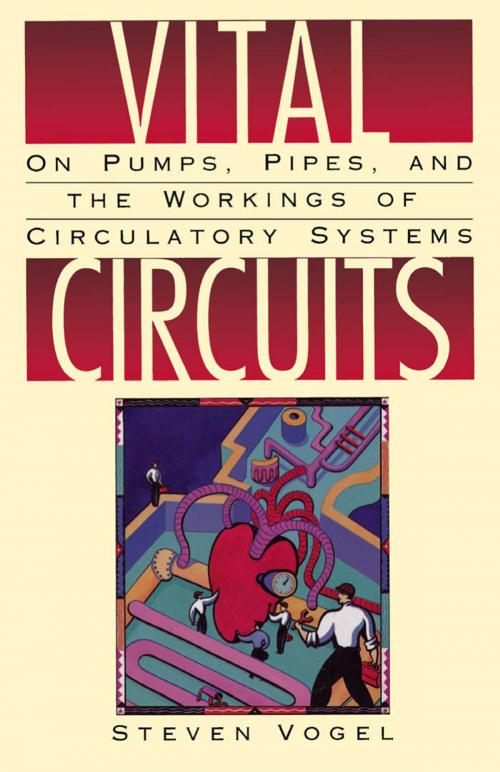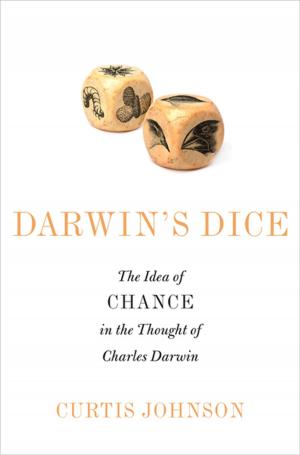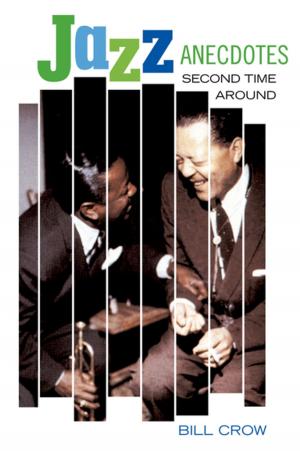Vital Circuits
On Pumps, Pipes, and the Workings of Circulatory Systems
Nonfiction, Health & Well Being, Health| Author: | Steven Vogel | ISBN: | 9780190282035 |
| Publisher: | Oxford University Press | Publication: | April 1, 1993 |
| Imprint: | Oxford University Press | Language: | English |
| Author: | Steven Vogel |
| ISBN: | 9780190282035 |
| Publisher: | Oxford University Press |
| Publication: | April 1, 1993 |
| Imprint: | Oxford University Press |
| Language: | English |
Most of us think about our circulatory system only when something goes wrong, but the amazing story of how it goes right--"magnificently right," as author Steven Vogel puts it--is equally worthy of our attention. It is physically remarkable, bringing food to (and removing waste from) a hundred trillion cells, coursing through 60,000 miles of arteries and veins (equivalent to over twice around the earth at the equator). And it is also intriguing. For instance, blood leaving the heart flows rapidly through the arteries, then slows down dramatically in the capillaries (to a speed of one mile every fifty days), but in the veins, on its way back to the heart, it speed up again. How? In Vital Circuits, Steven Vogel answers hundreds of such questions, in a fascinating, often witty, and highly original guide to the heart, vessels and blood. Vogel takes us through the realm of biology and into the neighboring fields of physics, fluid mechanics, and chemistry. We relive the discoveries of such scientists as William Harvey and Otto Loewi, and we consider the circulatory systems of such fellow earth-dwellers as octopuses, hummingbirds, sea gulls, alligators, snails, snakes, and giraffes. Vogel is a master at using everyday points of reference to illustrate potentially daunting concepts. Heating systems, kitchen basters, cocktail parties, balloons--all are pressed into service. And we learn not only such practical information as why it's a bad idea to hold your breath when you strain and why you might want to wear support hose on a long airplane flight, but also the answers to such seemingly unrelated issues as why duck breasts (but not chicken breasts) have dark meat and why dust accumulates on the blades of a fan. But the real fascination of Vital Circuits lies neither in its practical advice nor in its trivia. Rather, it is in the detailed picture we construct, piece by piece, of our extraordinary circulatory system. What's more, the author communicates not just information, but the excitement of discovering information. In doing so, he reveals himself to be an eloquent advocate for the cause of science as the most interesting of the humanities. Anyone curious about the workings of the body, whether afflicted with heart trouble or addicted to science watching, will find this book a goldmine of information and oelight.
Most of us think about our circulatory system only when something goes wrong, but the amazing story of how it goes right--"magnificently right," as author Steven Vogel puts it--is equally worthy of our attention. It is physically remarkable, bringing food to (and removing waste from) a hundred trillion cells, coursing through 60,000 miles of arteries and veins (equivalent to over twice around the earth at the equator). And it is also intriguing. For instance, blood leaving the heart flows rapidly through the arteries, then slows down dramatically in the capillaries (to a speed of one mile every fifty days), but in the veins, on its way back to the heart, it speed up again. How? In Vital Circuits, Steven Vogel answers hundreds of such questions, in a fascinating, often witty, and highly original guide to the heart, vessels and blood. Vogel takes us through the realm of biology and into the neighboring fields of physics, fluid mechanics, and chemistry. We relive the discoveries of such scientists as William Harvey and Otto Loewi, and we consider the circulatory systems of such fellow earth-dwellers as octopuses, hummingbirds, sea gulls, alligators, snails, snakes, and giraffes. Vogel is a master at using everyday points of reference to illustrate potentially daunting concepts. Heating systems, kitchen basters, cocktail parties, balloons--all are pressed into service. And we learn not only such practical information as why it's a bad idea to hold your breath when you strain and why you might want to wear support hose on a long airplane flight, but also the answers to such seemingly unrelated issues as why duck breasts (but not chicken breasts) have dark meat and why dust accumulates on the blades of a fan. But the real fascination of Vital Circuits lies neither in its practical advice nor in its trivia. Rather, it is in the detailed picture we construct, piece by piece, of our extraordinary circulatory system. What's more, the author communicates not just information, but the excitement of discovering information. In doing so, he reveals himself to be an eloquent advocate for the cause of science as the most interesting of the humanities. Anyone curious about the workings of the body, whether afflicted with heart trouble or addicted to science watching, will find this book a goldmine of information and oelight.















